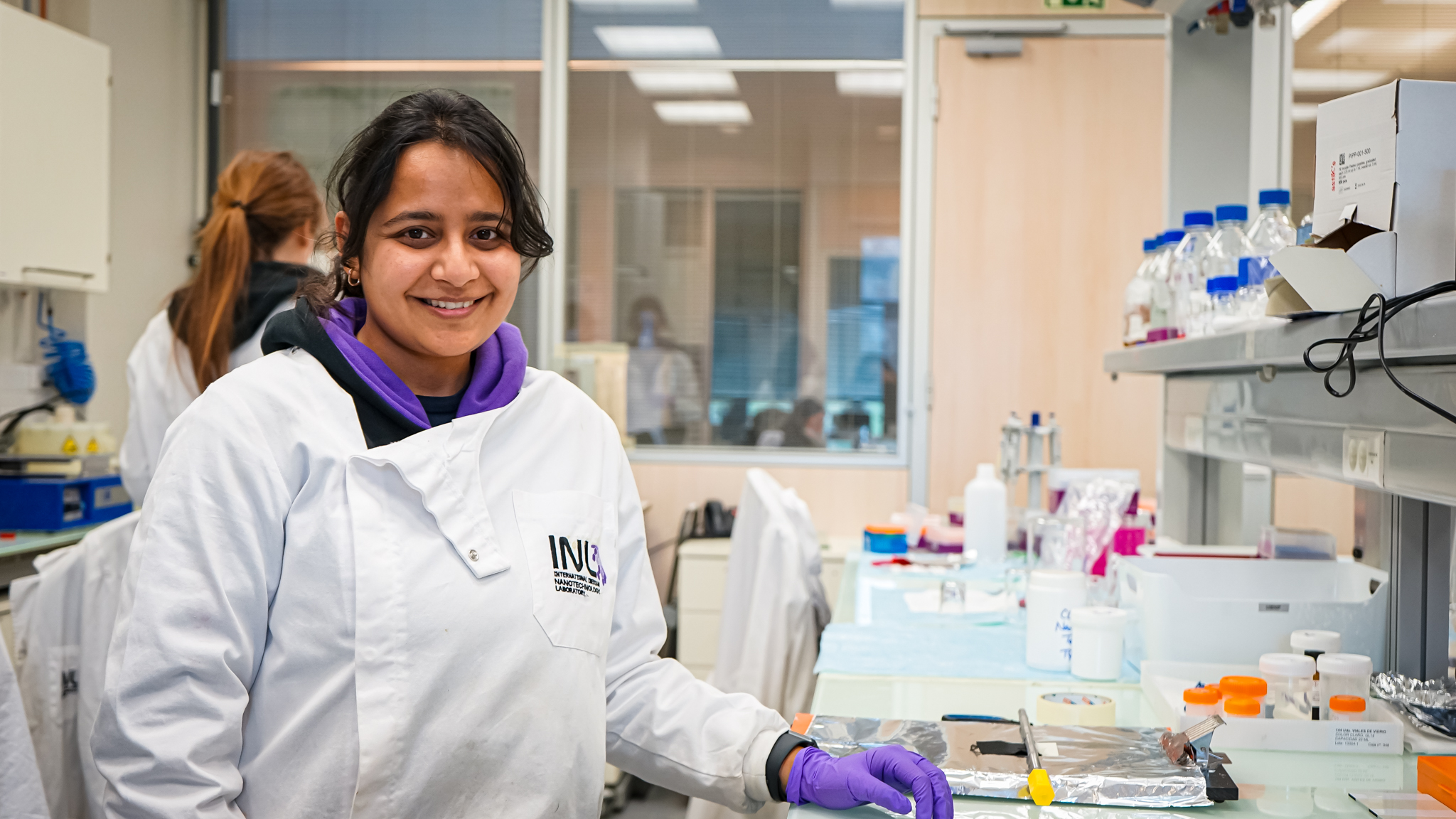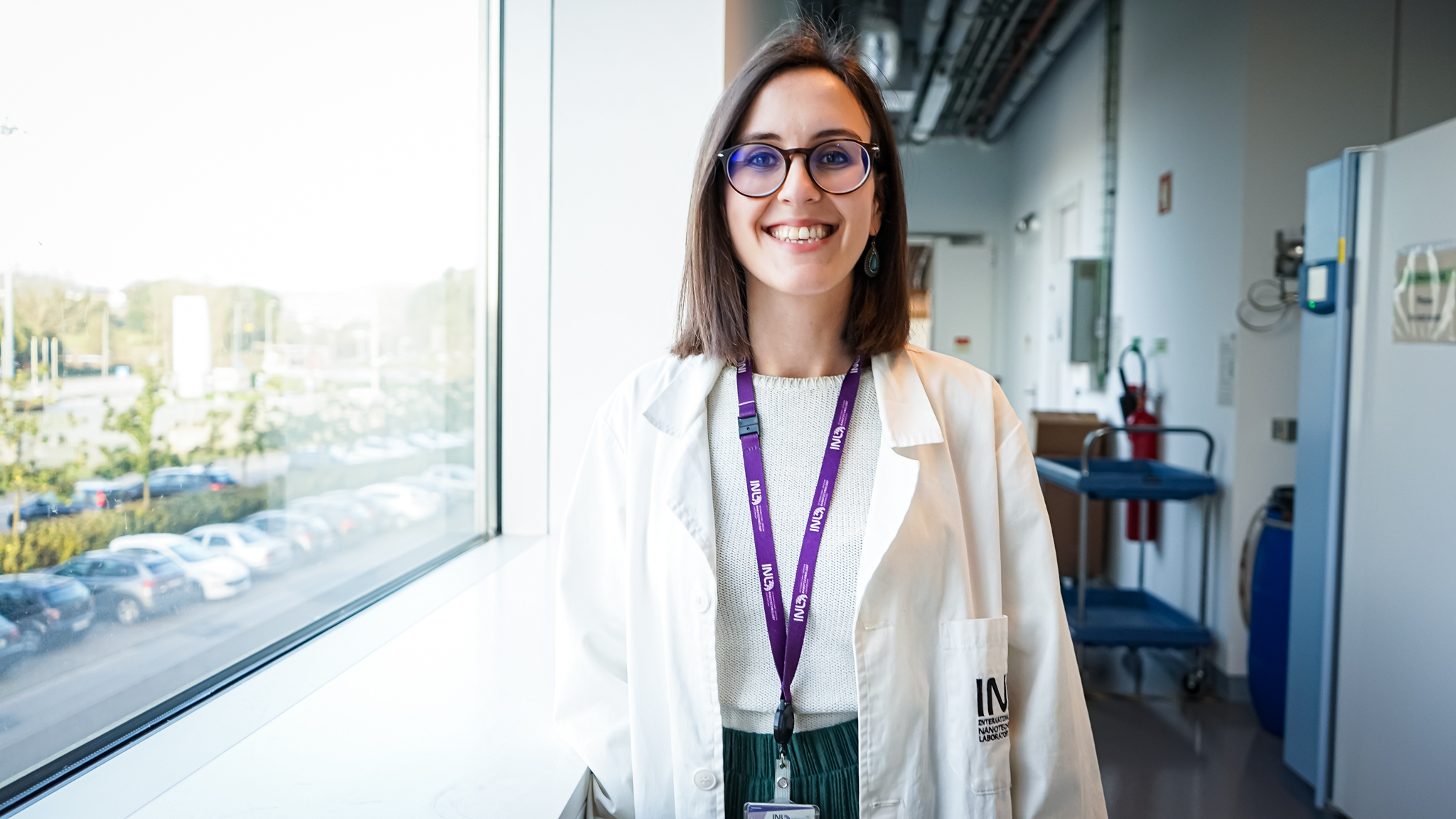
Alexandra Teixeira, developing diagnostic tools tailored for accurate MRD diagnosis
March 1, 2024
Welcome to a new series of interviews highlighting the indispensable role of women in science. Throughout this series, we aim to showcase the remarkable contributions of women scientists across various disciplines and career stages.
From groundbreaking research to innovative discoveries, these interviews will provide insight into the diverse and impactful work of women in the scientific community. Join us as we celebrate their achievements, share their stories, and inspire future generations of female scientists.
Meet Alexandra Teixeira, PhD Student at INL – International Iberian Nanotechnology Laboratory. Recently defended her PhD thesis entitled: “Development of microfluidic nano biosensors for early diagnosis of acute myeloid leukaemia and monitoring of minimal residual disease” with the highest grade.

Could you provide some insights into your background, your primary field of expertise, and the significance of your work?
My educational journey started with a degree in Biology and Geology at the University of Minho. However, driven by a passion for health-related sciences, I did a master’s degree and later a PhD in Health Sciences at the School of Medicine, also at the University of Minho.
Throughout my career, particularly during PhD, I gained expertise in microfluidics, surface-enhanced Raman scattering spectroscopy (SERS), and next-generation sequencing (NGS). My PhD research focused on using these techniques to develop accurate and sensitive diagnostic tools for the early detection of minimal residual disease (MRD) in Acute Myeloid Leukemia (AML). Specifically, I explored the application of microfluidics and SERS in the development of diagnostic tools tailored for accurate MRD diagnosis, while using NGS to investigate the expression of autophagy genes and their prognostic implications in AML. With the overall aim of designing strategies that simplify the diagnosis of MRD and enable future personalized therapeutic interventions, ultimately improving patient outcomes.
I am currently involved in an interesting project titled 3DSecret. This project, although still at a preliminary stage, holds significant promise in deciphering the metastatic potential of circulating tumour cells (CTCs). Our goal is to extract comprehensive insights from single cells, particularly CTCs,, to predict malignancy and reveal underlying metastatic patterns. Specifically, we are exploring the growth of 3D spheroids from single cells, to which we will conduct multifaceted analyses – including metabolomics, transcriptomics and genomics – to elucidate the intricacies of heterogeneity and better prediction of their malignancy.

How would you explain the importance of your field to someone who may not have a background in science or scientific concepts?
Communicating my area of work and its importance to people less familiar with scientific concepts is sometimes challenging. However, mentioning ‘cancer’, ‘metastasis’, ‘early diagnosis’ and ‘working in the cancer diagnostics’, I believe, already demonstrates some significance and captures interest.
Thus, I believe that my area of work is relevant because we are focused on the development of early detection strategies, which are minimally invasive diagnostic devices and can provide an opportunity window in diagnosis, as well as for more effective therapies and consequently better outcomes.
Furthermore, I believe that the fact that we are also trying to predict the malignancy of a single cell and discover patterns behind metastasis will be an advantage in understanding cancer disease, as well as potentially allowing a leap forward in diagnosis and prognosis.
All of these aspects mentioned could be of added value in the future in the area of cancer, and consequently for patients.

How can we inspire future students to engage in research?
Research is fuelled by curiosity, characterized by the relentless search for answers that often leads to remarkable and deeply impactful discoveries across multiple domains. Furthermore, research work allows for collaboration with experts in different fields, allows interdisciplinary exchange and also promotes the crossing of ideas and driving innovation.
I believe it is crucial to emphasize to future students the impact of research in the real world. That we can make a difference. Throughout history, researchers have played a key role in addressing global challenges, such as the recent pandemic, and continue to make progress in areas such as cancer research and many others. This highlights the potential for researchers of the future to make significant contributions that, although sometimes modest, can have significant implications for generations to come.
So, it is essential to emphasize the vital role that future students play in this field. They are ultimately responsible for maintaining curiosity, and promoting continuous research, and only in this way will they allow knowledge to advance and drive innovation.
Photography by Gina Palha, Corporate Communication and Marketing Officer


